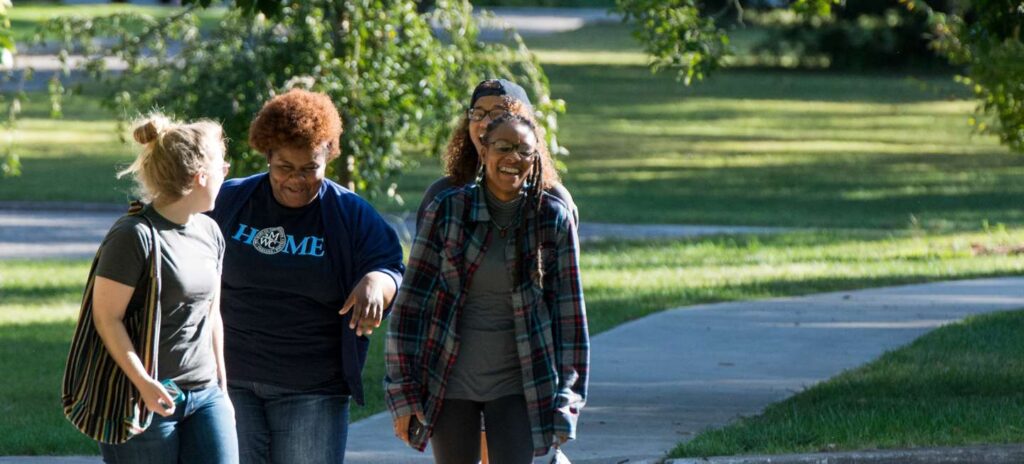
Addictions Counseling Degree Program
A Bachelor of Science degree in Addictions Counseling from Saint Mary-of-the-Woods College (SMWC) will prepare you for a rewarding career helping those suffering from addiction and substance abuse. You will develop the knowledge, skills and attitudes necessary to prepare you for the Licensed Addiction Counselor (LAC) exam.
Bachelor of Science (B.S.) in Addictions Counseling
The addictions counseling program is designed with a focus on trauma-informed treatment and students will develop cultural competence and a trauma-informed approach to counseling addicted persons and families. Our degree programs provide the flexibility to lead you to the career of your dreams. With your professional advisors helping you along the way, you can mix and match majors and minors to get the perfect degree tailored to you and your career aspirations. Plus, you’ll graduate with a strong foundation in liberal arts.
Students will develop knowledge of addictions theory, developmental and abnormal psychology, treatment planning and family education. They will also gain an understanding of psychoactive drugs and their effects and be able to demonstrate an ethical and professional attitude and actions. You will be prepared for a career in addictions counseling, as the curriculum includes 350 clock hours of addictions counseling internship.
Addictions Counseling Major Curriculum – College Catalog
Addictions Counseling Certificate Curriculum – College Catalog
If you already have a bachelor’s degree in psychology or a related field, you can pursue an addictions counseling certificate.
FAQs
What is addictions counseling?
Addictions counseling is the process where an addicted person seeks help from a professional drug and alcohol counselor to overcome this disease. Addictions counselors work not only with the patient but can help family members through the process of recovery as well.
Why get a degree in addictions counseling?
Earning a bachelor’s degree in addictions counseling from SMWC qualifies you to take the LAC exam to become a Licensed Addictions Counselor. It also provides you the knowledge and tools to make a difference in addicts’ lives, as well as addicts’ families. This degree provides a pathway to many rewarding career opportunities.
What can you do with a degree in addictions counseling?
Having a bachelor’s degree in addictions counseling allows you to go down many career paths based on your interests! You may choose to go on to pursue a post-graduate certificate in addictions counseling. There are many options to help you achieve your goals in this career field. Here are some jobs you can get with an addictions counseling degree:
- Case manager
- Recovery coach
- Alcohol and drug counselor
- Behavioral disorder counselor
- Program coordinator
- Crisis intervention
Check out our blog: What can you do with an Addictions Counseling Degree?
What is the average annual salary of someone with an addictions counseling degree?
The need for addiction counselors continues to rise and the Bureau of Labor Statistics (BLS) projects an increase of 23% in the number of substance abuse, behavioral disorder and mental health counselors from 2020 to 2030, outpacing the average growth rate of all occupations in the U.S. As you look at starting salaries, keep in mind that the cost of living and opportunities to move with a career or industry sector should also factor into your decision. The average salary for substance abuse, behavioral disorder and mental health counselors is $49,710, according to BLS.
What support and resources are provided at SMWC?
The Learning Resource Center (LRC) provides exceptional, personalized learning resource services to encourage student success. The LRC offers help with a range of academic support services, including a writing center, tutoring, college success courses and more.
Saint Mary-of-the-Woods College is routinely ranked by US News and World Report among the Best Regional Universities in the Midwest and the Best Value Schools. Our departments are also routinely ranked for their individual degree programs.
See the SMWC Difference:
-
 Best Online Bachelor's ProgramsU.S. News & World Report
Best Online Bachelor's ProgramsU.S. News & World Report -
Best Online Colleges & Schools in IndianaStudy.com
-

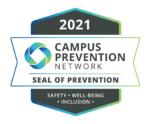 CPN Seal of PreventionCampus Prevention Network
CPN Seal of PreventionCampus Prevention Network -

 #8 Best Online Colleges in IndianaOnlineU
#8 Best Online Colleges in IndianaOnlineU -


 #2 Best Affordable Catholic Colleges with Online Bachelor’s DegreesAffordable Schools
#2 Best Affordable Catholic Colleges with Online Bachelor’s DegreesAffordable Schools -

 #7 Best Online Colleges in IndianaAccredited Schools Online
#7 Best Online Colleges in IndianaAccredited Schools Online -






 Best Regional Universities in the MidwestU.S. News & World Report
Best Regional Universities in the MidwestU.S. News & World Report -

 #7 The Best Online Colleges in IndianaThe Best Schools
#7 The Best Online Colleges in IndianaThe Best Schools -






 Economic Diversity - Regional Universities MidwestU.S. News & World Report
Economic Diversity - Regional Universities MidwestU.S. News & World Report -

 Designated Military Friendly SchoolMilitary Friendly
Designated Military Friendly SchoolMilitary Friendly -

 #10 Best Online CollegesCenter for Online Education
#10 Best Online CollegesCenter for Online Education -
#8 Top Online Colleges in IndianaOnlineDegrees.com
-






 Least Debt - Regional Universities MidwestU.S. News & World Report
Least Debt - Regional Universities MidwestU.S. News & World Report -

 #3 Accredited Online Colleges in Indiana for International StudentsScholarship Hall
#3 Accredited Online Colleges in Indiana for International StudentsScholarship Hall -

 Historically Women’s Colleges in the U.S.Great Value Colleges
Historically Women’s Colleges in the U.S.Great Value Colleges -


 #5 Best Affordable Schools in Indiana for Bachelor’s DegreeAffordable Schools
#5 Best Affordable Schools in Indiana for Bachelor’s DegreeAffordable Schools -

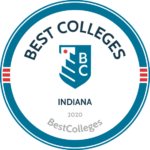 Best Colleges in IndianaBest Colleges
Best Colleges in IndianaBest Colleges -
Top College for AffordabilityScholarship360
-
#9 Schools Ranked by Student-Faculty RatioOEDb
-

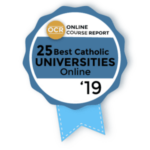 The 25 Best Online Catholic UniversitiesOnline Course Report
The 25 Best Online Catholic UniversitiesOnline Course Report -






 Best Value SchoolsU.S. News & World Report
Best Value SchoolsU.S. News & World Report -

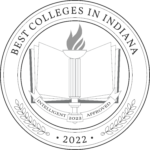 #6 Best Colleges in IndianaIntelligent
#6 Best Colleges in IndianaIntelligent -

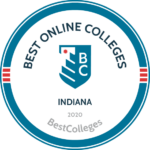 #6 Best Online Colleges in IndianaBest Colleges
#6 Best Online Colleges in IndianaBest Colleges -


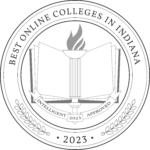 #6 Best Online Universities and Colleges In IndianaIntelligent
#6 Best Online Universities and Colleges In IndianaIntelligent -

 Best Online MastersOnline Masters Colleges
Best Online MastersOnline Masters Colleges -
Top Adult Degree ProgramsAbound
-

 #5 Online Colleges in IndianaGreat Value Colleges
#5 Online Colleges in IndianaGreat Value Colleges -






 Top Performers on Social MobilityU.S. News & World Report
Top Performers on Social MobilityU.S. News & World Report -

 25 Best Online CollegesBest College Reviews
25 Best Online CollegesBest College Reviews -

 #2 Best Online Colleges in IndianaValue Colleges
#2 Best Online Colleges in IndianaValue Colleges -


 Easiest AdmissionsIntelligent
Easiest AdmissionsIntelligent



